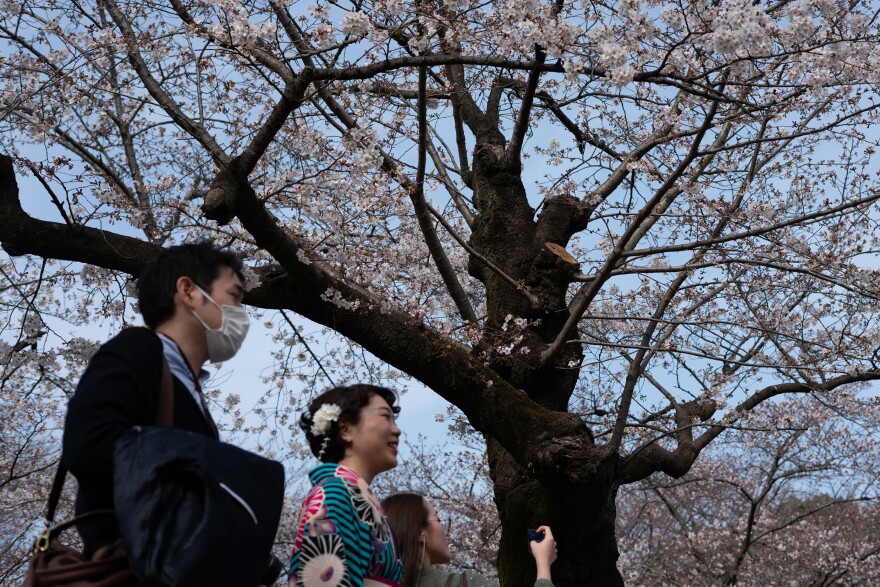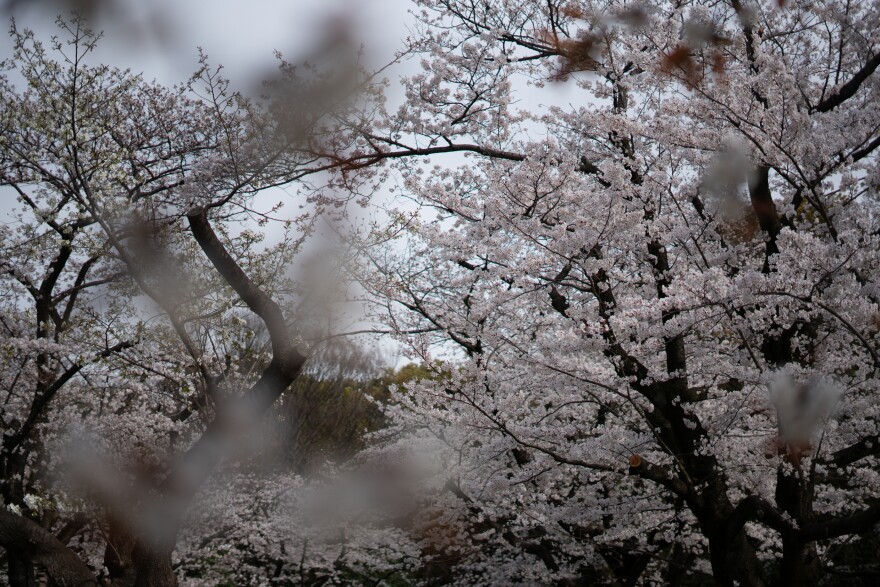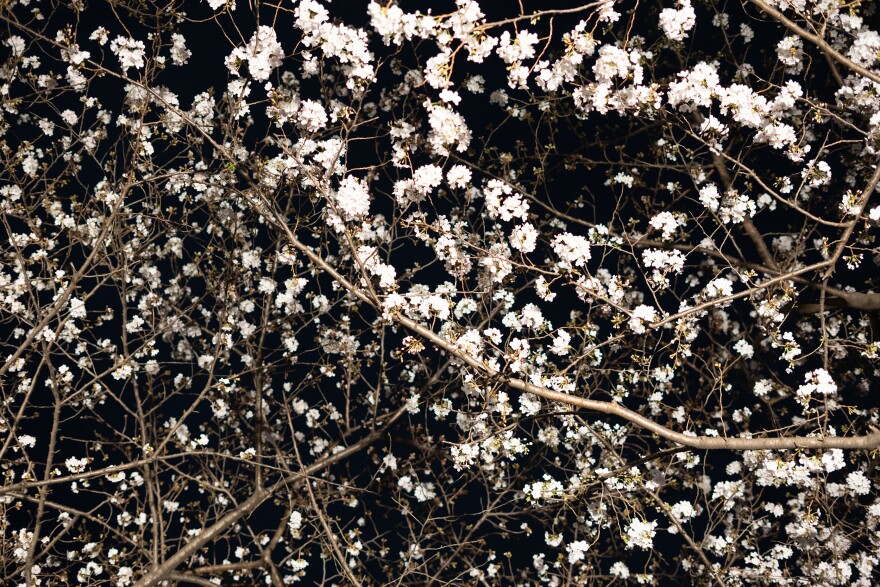It seemed like the perfect day for viewing the stunning flower-filled trees.
With warm temperatures and the sun out, crowds of people strolled under the cherry blossoms and spread out picnic blankets in Tokyo's Yoyogi Park last weekend, all but ignoring the posted signs warning of the dangers of COVID-19 spreading.
Near one of the tall white signs, two pairs of young women stood together and took selfies under the canopy of flowers, oblivious to the warnings.



Though Japan hasn't seen explosive infection rates like China or Italy, medical experts question the effectiveness of testing in Japan and infectious disease specialists worry that the Japanese are not taking the virus seriously.
On Tuesday, after athletes and sporting federations around the world called for the games to be postponed because of the COVID-19 pandemic, Japanese Prime Minister Shinzo Abe said the Tokyo Summer Olympics would be delayed by up to a year.
In recent weeks, public gatherings have been discouraged all across Japan. Sporting events played out to empty stadiums behind closed doors, and the Tokyo Marathon was run with few spectators.


But the country seems to be coming back to life. Schools are expected to reopen in the next few weeks, and Japan's tradition of cherry blossom viewing, or Hanami, drew many to parks around the city.
Large groups of picnickers on plastic mats enjoyed snacks and sake under the trees with friends and family, as pink petals occasionally drifted down on them from above.


But amid the air of excitement and normalcy, with children and dogs running around, and smartly dressed people posing for photos in front of the flowers, the number of confirmed COVID-19 cases in Japan crept up as 47 new infections were reported on Sunday.
The cherry blossom season is normally an economic boom for Japan, drawing upwards of 8 million foreign tourists last year alone. This year's global pandemic has already decreased tourism significantly, at a pace that suggests it may be as bad as after the 2011 earthquake, tsunami and nuclear disaster in northeastern Japan.
Copyright 2023 NPR. To see more, visit https://www.npr.org.





